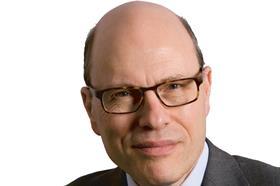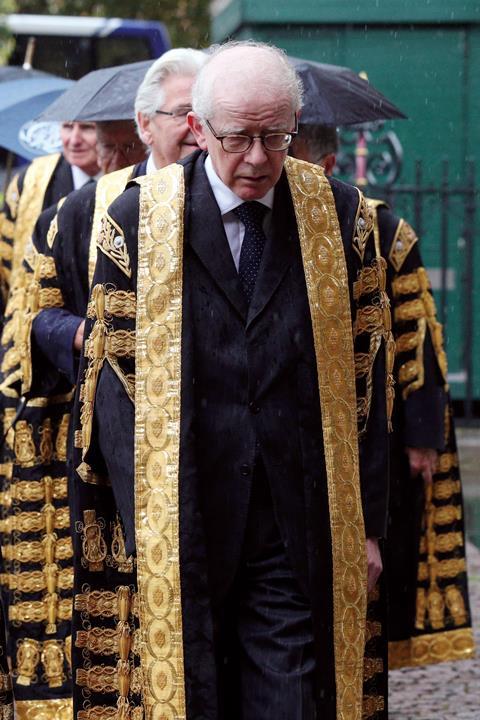The justice secretary was ‘quietly confident’ that the government would be successful in the arguments it will be putting to the Supreme Court on Rwanda this week, he told the Today programme last Tuesday.

But Alex Chalk was careful to hedge his bets. ‘Let’s wait and see,’ he added. The Supreme Court needed the time and space to rule on the specific facts of the case.
‘They do that brilliantly and fairly and impartially,’ he continued, while insisting that ‘off-shoring’, as he called it, was consistent with the UK’s international legal obligations.
It is true that the government lost in the Court of Appeal on whether it was safe to send asylum-seekers to Rwanda. And this was a majority decision, with a dissent from Lord Burnett, the former lord chief justice.
But the evidence has not changed. If the government is to win the case, it must persuade the Supreme Court that Lord Justice Lewis and Mr Justice Swift in the High Court got the law right, and that Sir Geoffrey Vos and Lord Justice Underhill, for the majority in the Court of Appeal, got it wrong.
Allowing the migrants’ appeals in June, the two senior judges found that deficiencies in Rwanda’s asylum system meant there were substantial reasons for believing there was a real risk that people with a good claim for asylum would be returned to countries where they would face persecution or other inhumane treatment.
Why, then, was Chalk quietly confident? Does he think Lord Reed’s Supreme Court is more conservative than it was under Lady Hale? To allay any such accusations, Reed (pictured) decided that the appeal would be heard by the five most senior members of his court.

More to the point, what made Chalk feel he needed to predict the outcome? He is not the government’s legal adviser – that’s the attorney general. Nor is he the appellant– that’s the home secretary.
Chalk was being asked about suggestions from Suella Braverman that the UK might withdraw from the European Convention on Human Rights if the Supreme Court allowed removals to Rwanda and the human right court then blocked them. It might never come to that, he seemed to be saying.
Those attempts to reassure BBC listeners were undermined a few hours later when Braverman told the Conservative conference that the previous Labour government had misnamed the Human Rights Act 1998. ‘I am surprised they didn’t call it the Criminal Rights Act,’ she said tartly.
It is never a good idea for a justice secretary to tell judges how they are expected to do justice. Only a day earlier, as Dame Sue Carr took the judicial oath, Chalk and Reed sat together on the same judicial bench – Chalk in the robes of the lord chancellor, Reed wearing his gown as a justice of the Supreme Court. I’m sure that Reed didn’t tip Chalk the wink as they waited to enter court. But that’s what people might think when ministers start predicting the outcome of a case that has not yet been argued.
Little surprise, then, that the new lady chief justice stressed judicial independence in a short video clip released immediately after her swearing-in.
‘I am determined,’ she pledged, ‘to foster the independence of the judiciary – separate from both government and parliament – so that the public can have continued confidence that judges and magistrates decide the cases that come before them fearlessly and without bias, upholding the rule of law.’
And that message was endorsed by Vos, the master of the rolls, in his speech of welcome. Pointing out that the new lady chief justice would now have to work with the lord chancellor and other organs of government, he predicted that she would be ‘fearless in protecting the independence of the judiciary and the rule of law’.
Her predecessor never spoke about the difficulties he had with Chalk’s predecessor, Dominic Raab. But tensions were not far beneath the surface. Perhaps that’s what the chair of the bar was referring to when he told Carr that much of her immense influence would be wielded – and wielded most effectively – in private. As Nick Vineall KC explained: ‘There will always be a gap between the level of activity the media would like to see from the lady chief justice and what is wise or even appropriate for the lady chief justice to undertake.’
With Braverman predicting that the next general election will be fought on law and order, Carr now has a difficult line to tread. While eschewing politics, she must make sure the judges’ position is understood in Whitehall, Westminster and beyond. Though she can give practical suggestions to legislators, she must never offer legal advice to governments.
That’s because, in the end, judges must decide whether ministers have acted lawfully. And past experience shows we can never take that for granted.































2 Readers' comments